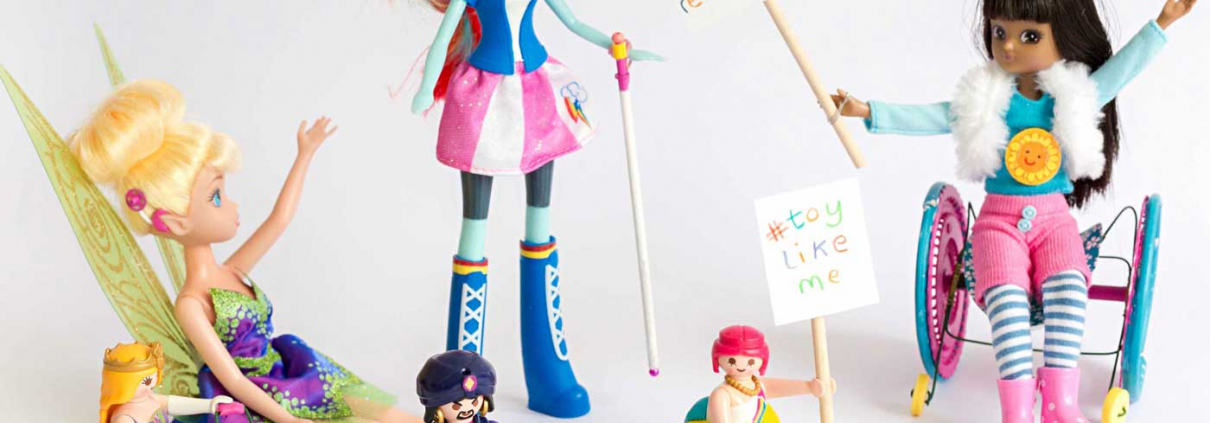
The holidays have come and gone, but the fervor that children have for playing with new toys hopefully won’t calm down for a while. From the toys your children received as a gift, or maybe even ones you’ve given them, you might notice one thing in common. The vast majority of toys on the market don’t resemble the widely different children that play with them. But, one campaign is calling out the toy industry and asking for equal representation for all children, children with disabilities and users of mobility equipment, Toy Like Me is a call to action for toy companies to think of the boys and girls that use a hearing aid or wheelchair and would like to see themselves represented.
The Making of Makies
The idea of a custom doll or toy is becoming a reality with Makies through a petition and movement via Facebook page of Toy Like Me. Started by two deaf mothers, they quickly gained traction by focusing on the 150 million children needing assistive equipment worldwide. Touched by their sentiment, Makies, a British toymaker, produced dolls that were more realistic and included hearing aids, walking aids and facial birthmarks for the dolls. Their site mentions that they’re bringing their toys to America, but until then, they’ll have to resupply their stock in the UK, as they’ve already sold out.
American Girl and Special Kits
The use of 3D-printing technology has allowed Makies to make realistic dolls for children of all types of special needs. Toy Like Me regularly posts to its Facebook page of those differently abled children depicted in toys, along with a request to sign its petition for LEGO. One major toy company that is a supporter of children with other needs is American Girl. In December 2015, the company made diabetic care kits available online starting at $24 to pair with their line of dolls. Items in the kit include insulin pumps, glucose tablets, insulin pens and more. With 20,092 supporters (at the time of this writing) of Toy Like Me’s petition, the demand is clear for customized toys.
How You Can Help
Using the link above, you can also petition to ask LEGO for more inclusive toys for your children, whether they use disability aids, mobility equipment or not. For children who need to use cochlear implants or a diabetic care kit, they can understand that a large brand, such as LEGO, believes in them and their significance in being represented. Other children can see the same toys and celebrate the differences that make every person unique, which can lead to a positive experience meeting someone with that likeness in real life.
Choosing more toys that are not rigid in stereotypes and supportive for all can lead to a better playing experience for you and your children.
The National Mobility Equipment Dealers Association (NMEDA) is an advocate for mobility and accessibility for drivers with disabilities. If you need help with converting or buying a handicap accessible car, truck or van, please consider one of our Quality Assurance Program mobility equipment dealers.
